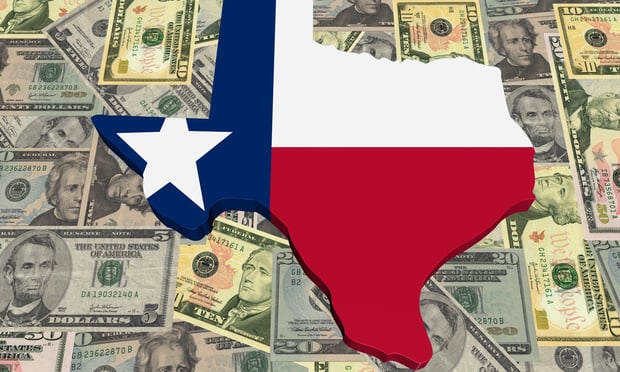DALLAS—In response to the impact of COVID-19 on the hospitality industry, Ashford Hospitality Trust Inc. is deploying numerous strategies and protocols to protect the health and safety of its employees, guests, partners and communities in which it operates. In addition, the company has partnered with local government agencies, medical staffing organizations and hotel brands to support COVID-19 response efforts. To date, 48 Ashford Trust hotels have provided temporary lodging for first responders, healthcare professionals and other community residents impacted by the pandemic through various initiatives.
The anticipated negative impact of COVID-19 on economic activity and the hospitality industry continues to evolve. The crisis is expected to continue to impact the company's financial results during the second quarter of 2020 and beyond. Given its severity, Ashford anticipates doing a review of its long-term strategy after the crisis has passed, which may include material changes to its future leverage, capital structure, liquidity and investment focus.
Ashford has taken steps to ensure that it has additional financial flexibility going forward to navigate this crisis:
- The company has temporarily suspended operations at 23 properties and its remaining 93 properties are operating at reduced levels.
- Ashford worked proactively with its property managers to aggressively cut operating costs at its hotels, ultimately resulting in an approximate 90% reduction in property-level staffing.
- The company has significantly reduced its planned spend for capital expenditures for the year from a range of $125 to $145 million to a range of $30 to $50 million.
- Ashford has suspended its common dividend, conserving approximately $7 million per calendar quarter.
- The company is protecting liquidity and reducing corporate expenses through compensation reductions and the curtailment of expenses resulting in an approximate 25% reduction in corporate G&A and reimbursable expenses. It will continue to take all necessary additional actions to preserve capital and liquidity.
Ashford estimates that its current monthly cash burn at its hotels, given the current state of suspended or limited capacity operations, is approximately $20 million per month. The company's debt is all property-level, non-recourse debt and the monthly interest is currently approximately $13 million per month.
Ashford's run rate for corporate G&A and advisory fees is approximately $4 million per month.
The company ended the quarter with cash and cash equivalents of $240 million and restricted cash of $127 million. The vast majority of the restricted cash is comprised of lender- and manager-held reserves. Ashford is currently working with its property managers and lenders in order to utilize lender- and manager-held reserves to fund operating shortfalls. At the end of the quarter, there was also $19 million due from third-party hotel managers, which is the company's cash held by one of its property managers also available to fund hotel operating costs.
Beginning on April 1, 2020, the company did not make principal or interest payments under nearly all of its loan agreements, which constituted an "event of default" as such term is defined under the applicable loan agreement. The company is actively working with its lenders to arrange mutually agreeable forbearance agreements to reduce its near-term cash burn rate and improve liquidity.
"We weren't surprised really to see Ashford Trust hold payments on the non-recourse property-level debt," says Bryan Maher, analyst with B. Riley FBR.
Ashford recently reported financial results and performance measures for the first quarter ended March 31, 2020. At that time, the portfolio consisted of 116 hotels.
- Net loss attributable to common stockholders was $94.8 million or $0.94 per diluted share for the quarter.
- Comparable RevPAR decreased 22.9% to $95.16 for all hotels on a 3.8% decrease in ADR and a 19.8% decrease in occupancy.
- Adjusted EBITD was $47.4 million for the quarter.
- Adjusted funds from operations was $0.12 per diluted share for the quarter.
- Capex invested during the quarter was $20.4 million.
- As of March 31, 2020, the company had total mortgage loans of $4.1 billion with a blended average interest rate of 4.4%, along with cash and cash equivalents of $240.3 million.
In light of the economic uncertainty arising from the COVID-19 pandemic and to protect liquidity, Ashford and its board of directors announced a suspension of its previously announced 2020 common stock dividend policy. Accordingly, the company did not pay a dividend on its common stock and common units for the first quarter ending March 31, 2020. The board of directors will continue to monitor the situation and assess future quarterly common dividend declarations.
Deutsche Bank analyst Chris Woronka maintained a Buy rating on Ashford Hospitality and set a price target of $2.00. The company's shares closed May 15 at $0.65, close to its 52-week low of $0.47.
Currently, the analyst consensus on Ashford Hospitality is a Hold with an average price target of $1.70.
Want to continue reading?
Become a Free ALM Digital Reader.
Once you are an ALM Digital Member, you’ll receive:
- Breaking commercial real estate news and analysis, on-site and via our newsletters and custom alerts
- Educational webcasts, white papers, and ebooks from industry thought leaders
- Critical coverage of the property casualty insurance and financial advisory markets on our other ALM sites, PropertyCasualty360 and ThinkAdvisor
Already have an account? Sign In Now
*May exclude premium content© 2025 ALM Global, LLC, All Rights Reserved. Request academic re-use from www.copyright.com. All other uses, submit a request to [email protected]. For more information visit Asset & Logo Licensing.








